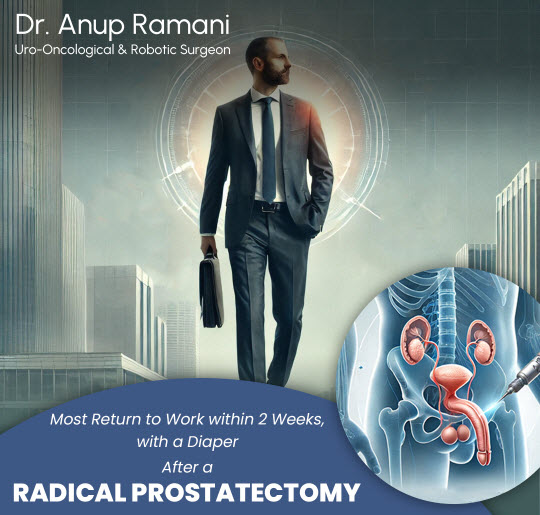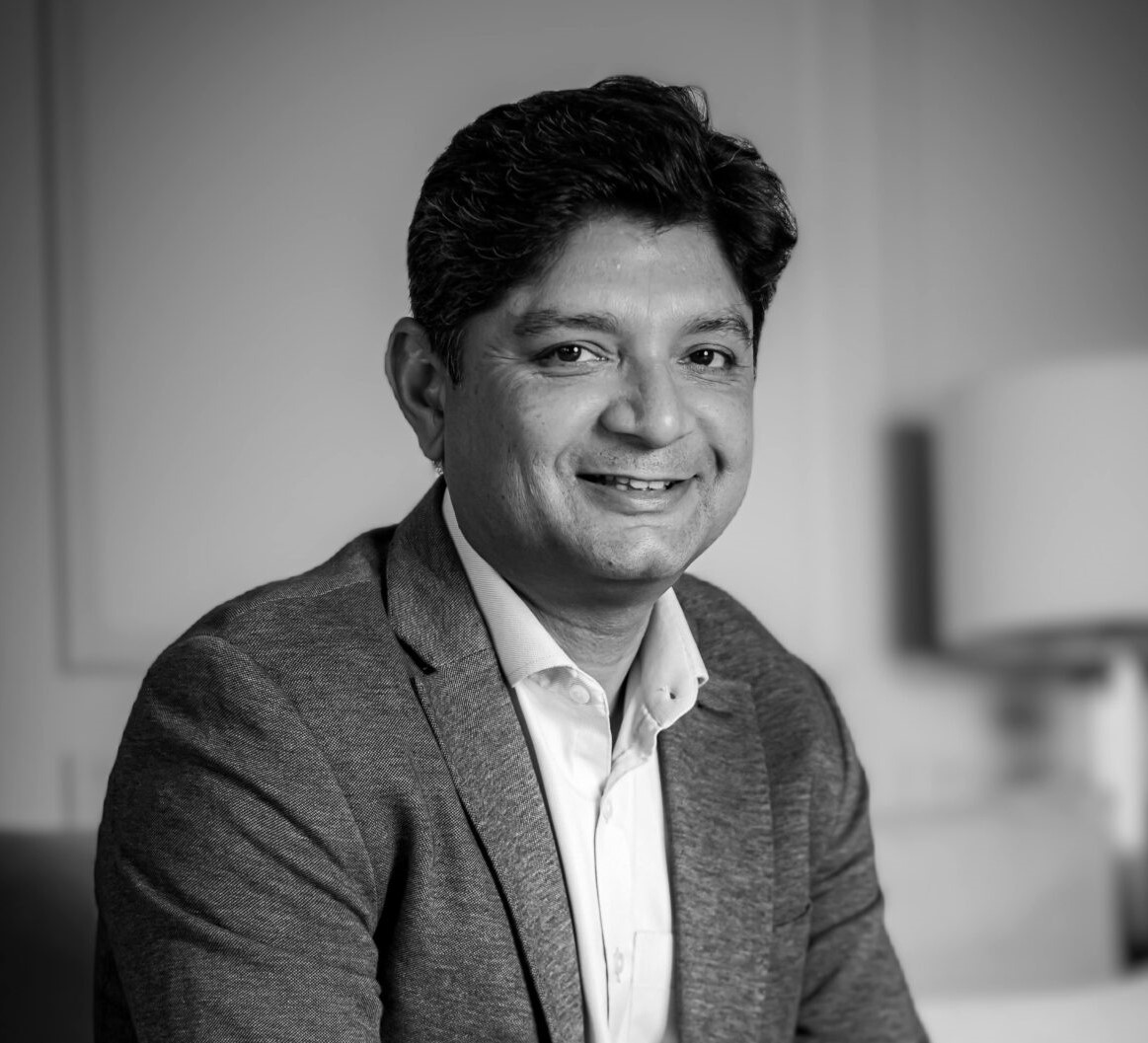Dr Anup Ramani @ Copyright 2024
By Dr. Anup Ramani
Mumbai has emerged as one of the most sought-after destinations for Prostate Cancer Surgery in the world, particularly for robotic radical prostatectomy and other advanced treatments. With its state-of-the-art facilities, highly experienced surgeons, and affordable costs, Mumbai is a beacon of hope for international patients seeking world-class care for prostate cancer.
This guide explores why Mumbai is the preferred choice for Prostate Cancer treatment, highlighting the cutting-edge technology, skilled specialists, and comprehensive patient support services available in the city.
Why Mumbai for Prostate Cancer Robotic Surgery?
Mumbai’s healthcare landscape is defined by excellence, innovation, and patient-centered care. For Robotic Surgery for Prostate Cancer, the city offers numerous advantages:
- Expert Surgeons: Mumbai is home to the best prostate cancer doctors, including leading experts in robotic radical prostatectomy. Their extensive experience ensures precise, minimal invasive procedures with optimal outcomes.
- Advanced Technology: Hospitals in Mumbai are equipped with cutting-edge robotic surgical systems like the Da Vinci robot, enabling minimal invasive surgery for prostate cancer with reduced recovery times and fewer complications.
- Affordable Costs: The cost of robotic radical prostatectomy in India, particularly in Mumbai, is significantly lower than in Western countries, making it a practical option for international patients.
- Comprehensive Care: Mumbai’s hospitals provide end-to-end support, from pre-operative consultations to post-surgery follow-ups, ensuring a seamless treatment experience.
Prostate Cancer Surgery Options in Mumbai
Mumbai offers a range of advanced surgical options tailored to the specific needs of prostate cancer patients:
-
Robotic Radical Prostatectomy:
This procedure, a gold standard for localized prostate cancer, is performed using robotic systems that allow unparalleled precision. Patients benefit from smaller incisions, less pain, and faster recovery. - Minimal Invasive Radical Prostatectomy: This technique minimizes tissue damage, reducing the risk of complications and ensuring quicker rehabilitation.
-
aparoscopic Surgery:
For patients who may not opt for robotic procedures, laparoscopic surgery offers a highly effective alternative with excellent success rates.

Leading Hospitals and Surgeons in Mumbai
Mumbai boasts some of the best hospitals for prostate treatment in India, renowned for their excellence in prostate cancer care. These facilities feature world-class infrastructure and employ the best robotic prostatectomy surgeons in the country.
-
Specialist Surgeons:
Patients can consult with the best prostate cancer surgeons in Mumbai, who have extensive experience in handling complex cases with high success rates. -
Comprehensive Facilities:
Hospitals in Mumbai provide advanced diagnostic tools, dedicated oncology units, and personalized care plans for international patients.
Affordable Costs for Prostate Cancer Surgery in Mumbai
One of the most compelling reasons to choose Mumbai for prostate cancer treatment is the affordability of care:
- The cost of robotic prostatectomy in India is typically 50-70% lower than in countries like the US or UK.
- The cost of robotic surgery for prostate cancer includes not only the procedure but also pre-operative
diagnostics, post-operative care, and hospital stay, making it an all-inclusive and cost-effective option. - Mumbai offers flexible payment plans and financial assistance programs for eligible patients, further easing the financial burden.
Expertise in Robotic Radical Prostatectomy
Mumbai has established itself as a global leader in robotic radical prostatectomy surgery, offering unparalleled expertise in this minimal invasive procedure:
-
High Precision:
The robotic system allows surgeons to operate with unmatched accuracy, reducing the risk of nerve damage and preserving urinary and sexual functions. -
Reduced Recovery Time:
Patients undergoing robotic prostate cancer surgery typically experience shorter hospital stays and quicker returns to normal activities. -
Low Complication Rates:
The advanced technology significantly minimizes blood loss, infection risks, and post-operative pain.
Comprehensive Patient Care in Mumbai
Mumbai hospitals provide holistic care tailored to the needs of international patients:
- Pre-Operative Consultations:
International patients receive thorough evaluations, including advanced imaging and diagnostics, to create a
personalized treatment plan. - Post-Surgery Recovery:
The prostate cancer operation recovery time is closely monitored, with access to rehabilitation programs and continuous follow-up care.

- Multilingual Support:
Hospitals employ multilingual staff and interpreters to ensure clear communication throughout the treatment journey.
Why Choose Robotic Surgery for Prostate Cancer in India?
Opting for robotic surgery for prostate cancer treatment in India, especially in Mumbai, offers numerous benefits:
-
Advanced Technology at Lower Costs:
Patients gain access to cutting-edge robotic systems without the exorbitant costs associated with similar treatments abroad. -
Global Expertise:
Surgeons specializing in robotic prostatectomy in India are often trained at leading international institutions, ensuring world-class care. -
Patient-Centric Approach:
Indian healthcare providers prioritize patient comfort, offering comprehensive services from diagnosis to recovery.
Enlarged Prostate Treatment in Mumbai
For patients dealing with benign prostatic hyperplasia (BPH), Mumbai also offers effective solutions:
- Enlarged Prostate Surgery in Mumbai:
Advanced techniques like TURP (Transurethral Resection of the Prostate) and laser therapy ensure effective
symptom relief with minimal side effects. - Comprehensive Care for BPH:
The city is renowned for its experienced prostate cancer specialists who manage both cancerous and non-cancerous prostate conditions with equal expertise.
Recovery and Aftercare in Mumbai
Patients undergoing prostate cancer surgery in Mumbai receive exceptional post-operative care, which is crucial for recovery and long-term outcomes:
-
Recovery Time:
The average prostate cancer operation recovery time for robotic procedures is significantly shorter than traditional surgery, with most patients resuming normal activities within a few weeks. -
Rehabilitation Programs:
Specialized rehabilitation programs, including pelvic floor exercises and dietary counseling, help patients regain urinary control and overall health. -
Telemedicine Follow-Ups:
For international patients, Mumbai hospitals offer telemedicine services to ensure seamless follow-up care after returning to their home countries.
Why International Patients Trust Mumbai for Prostate Cancer Treatment
Mumbai’s reputation as a top destination for prostate cancer surgery in India is well-deserved, thanks to its consistent delivery of excellent outcomes:
-
Proven Success Rates:
The city has a high success rate for prostate cancer surgeries, attributed to its skilled surgeons and advanced technology. -
Accessibility:
Mumbai is well-connected globally, making it a convenient choice for international patients. -
Patient Testimonials:
Many international patients have shared their success stories, highlighting the exceptional care and outcomes they experienced in Mumbai.
Conclusion
Mumbai stands as a global leader in robotic radical prostatectomy and prostate cancer care, offering a combination of expert surgeons, state-of-the-art facilities, and affordable costs. For international patients seeking prostate cancer treatment in India, the city provides unmatched medical expertise, advanced technology, and a supportive healthcare environment.
Whether you’re considering minimal invasive surgery for prostate cancer or exploring the latest advancements in robotic procedures, Mumbai ensures top-tier care tailored to your unique needs.
FAQs About Prostate Cancer Robotic Surgery
1. Why is Mumbai a top choice for prostate cancer robotic surgery?
Mumbai offers world-class robotic surgical systems, skilled surgeons, and affordable treatment costs, making it an ideal destination for international patients.
2. What are the benefits of robotic prostatectomy in India?
Robotic prostatectomy provides high precision, minimal recovery time, and fewer complications, ensuring excellent outcomes for prostate cancer patients.
3. What is the average cost of robotic surgery for prostate cancer in Mumbai?
The cost is significantly lower than in Western countries, with comprehensive packages covering diagnostics, surgery, and post-operative care.
4. Who are the best prostate cancer surgeons in Mumbai?
Mumbai is home to some of the best robotic prostatectomy surgeons, trained at top international institutions and experienced in handling complex cases.
5. How can international patients access prostate cancer treatment in Mumbai?
Mumbai hospitals offer dedicated medical tourism services, including visa assistance, travel arrangements, and telemedicine follow-ups for a seamless treatment experience.
Read More Articles on Prostate Cancer Robotic Surgery
About Author

Uro-Oncological & Robotic Surgeon
Dr. Anup Ramani is a robotic uro-oncological surgeon and an internationally recognized expert in robotic surgery for prostate, kidney and urinary bladder cancers. With more than two decades of robotic experience and 2,000+ robotic procedures, he brings unmatched precision and outcomes to complex uro-oncology cases. He is widely published in his field and is known for a personal, transparent approach-often spending over an hour in initial consultations to educate patients on its disease, surgery and recovery. His expertise spans prostate cancer treatment, kidney and bladder cancer surgery, adrenal gland surgery, kidney stone treatment, penile cancer surgery and enlarged prostate management. Dr. Ramani advocates the advantages of robotic surgery-magnified 3D vision, tremor-filtered precision, minimal scarring, lower blood loss and faster recovery-helping patients return to life sooner.
Table of Contents
Recent Blogs
Best Uro-Oncological surgeon
Specialist in India for Robotic Surgery
MCh, DNB, MS, DNB
Dr. Anup Ramani
CONTACT
Uro-Oncologist in India,
Best Robotic Surgeon for Uro Oncology Surgery
1407, One Lodha Place Next to World Towers Senapati Bapat Marg, Worli, Mumbai. 400013.
Dr Anup Ramani @ Copyright 2024 – Website Maintenance, SEO & GEO by Opal Infotech
- Partial penectomy is done in cases where glans and distal penis is involved with carcinoma.
- Partial penectomy is a type of organ-preserving surgery. Preservation of sexual and micturational function depends on the surgical dissection and reconstruction of residual urethra.
- Patients who develop stones in the kidney or ureter, often experience severe pain.
- This condition usually needs a procedure to remove the kidney stones.
- This procedure is called ureteroscopy and is performed very commonly.
- It does not require any cuts and hence it is painless.
- The procedure is performed with an endoscope inserted through the penis under spinal anesthesia.
- The scope is inserted through the penis into the kidney and stones are dissolved with a laser.
- The procedure takes about 40-50 minutes.
- A catheter (urine pipe) is kept after the procedure to drain the bladder. A stent is kept in the kidney at the same time.
- Patient is mobile and walking in the room the same evening.
- Hospital stay is one night and patient is discharged the next day after removal of the catheter.
- Patient has to come back after six weeks to remove the stent in the kidney.
- Patients can resume office a week after surgery and heavy activities like running, weight lifting, a month after the procedure.
- We offer fixed packages for this procedure which can be obtained by calling our helpline +91 9967666060.
- Men with an enlarged prostate, which is a normal ageing changes, often experiencing difficulty passing urine. This condition usually needs a procedure to trim the prostate and relieve the blockage.
- This procedure is called TURP and is performed very commonly.
- It does not require any cuts and hence it is painless.
- The procedure is performed with an endoscope inserted through the penis under spinal anaesthesia.
- The overgrown prostate is dissolved with a laser bloodlessly.
- The procedure takes about 40 minutes.
- A catheter (urine pipe) is kept after the procedure to drain the bladder.
- Patient is mobile and walking in the room the same evening.
- Hospital stay is two nights and patient is discharged with the catheter, which is removed after 4 days.
- Patients can resume office a week after surgery and heavy activities like running, weight lifting, a month after the procedure.
- We offer fixed packages for this procedure which can be obtained by calling our helpline +91 9967666060.
-
Robotic adrenalectomy is a sophisticated, complex surgery and it is very important that an experienced surgeon performs this surgery to avoid major complications.
-
Once the anesthesia is done, and patient positioned, three micro cuts (3mm each) are made in the patient’s abdomen.
-
The arms of the Da Vinci robot are connected to the cuts via ports (tubes).
-
Dr. Ramani then sits in the controlling console to perform the surgery.
-
On an average, a robotic adrenalectomy takes one hour.
-
The surgery is almost completely bloodless and there has never been any need to transfuse blood after surgery.
-
A urine catheter and bag to drain the bladder is inserted during surgery.
-
A tiny drain pipe may be inserted in the surgical side of the abdomen, connected to a bag.
-
Patient is kept nil-by-mouth the day of the surgery, with IV fluids. Sips of water are started the next day and solid food by day three.
-
The drain pipe, if kept, is removed in the room on day 2 after surgery.
-
The catheter is removed on day two after surgery.
-
Total hospital stay for robotic adrenalectomy is 4 nights (including night before surgery).
-
Post discharge, a doctor from the surgical team visits the patient at home/ hotel room once every day.
On the day of discharge, patient is totally self-sufficient. They are able to walk freely without any pain, dress themselves, shower, toilet and they do not need to hire any nurse or help at home. Almost all patients are back to work within 2 weeks of surgery.
Heavy activities like running, weight lifting can be resumed after a month
Follow up after an adrenalectomy is in the form of CT scans, once a year for 5 years.
Local patients usually meet Dr. Ramani after two weeks to discuss report.Outstation patients are counselled on a phone consultation.
- Dr. Ramani is one of the very few surgeons in India who has the expertise to perform a robotic surgery for bladder cancer, which includes removing the urinary bladder and reconstructing a new bladder robotically.
- Robotic radical cystectomy is an extremely sophisticated, complex surgery and it is very important that an experienced surgeon performs this surgery to avoid major complications.
- Once the anaesthesia is done, and patient positioned, six micro cuts (3mm each) are made in the patient’s abdomen.
- The arms of the Da Vinci robot are connected to the cuts via ports (tubes).
- Dr. Ramani then sits in the controlling console to perform the surgery.
- On an average, a robotic radical cystectomy with an ileal conduit takes 3-4 hours.
- The surgery is almost completely bloodless and there has never been any need to transfuse blood after surgery.
- A urine catheter and bag to drain the new bladder is inserted during surgery.
- Two tiny drain pipe in inserted in the surgical side of the abdomen, connected to a bag.
- Patient is kept nil-by-mouth for 4 days after surgery with IV supplementation of patient’s daily requirements of calories, fats, carbohydrates, proteins and electrolytes.
- The drain pipes are removed in the room on day 3-5 after surgery.
- Total hospital stay for radical cystectomy is 8 nights (including night before surgery).
- Post discharge, a doctor from the surgical team visits the patient at home/ hotel room once every day.
- On the day of discharge, patient is totally self-sufficient. They are able to walk freely without any pain, dress themselves, shower, toilet and they do not need to hire any nurse or help at home.
- Almost all patients are back to work within 6 weeks of surgery. Heavy activities like running, weight lifting can be resumed after two months.
Follow up after a radical a cystectomy is in the form of CT scans, once a year for 5 years.
Histopathology report: Local patients usually meet Dr. Ramani after two weeks to discuss report.
Outstation patients are counselled on a phone consult. Depending on the report, patient may or may not need chemotherapy after surgery.
If chemo is needed, patients may choose to get it done with a medical oncologist of their choice or avail the services of one of the four medical oncologists on our team.
- Robotic partial nephrectomy is a sophisticated, complex surgery and it is very important that an experienced surgeon performs this surgery to avoid major complications. Robotic radical (total) nephrectomy is
- relatively easier but still requires significant experience to consistently deliver results.
- Once the anaesthesia is done, and patient positioned, five micro cuts (3mm each) are made in the patient’s abdomen.
- The arms of the Da Vinci robot are connected to the cuts via ports (tubes).
- Dr. Ramani then sits in the controlling console to perform the surgery.
- On an average, a robotic radical nephrectomy takes one hour and a robotic partial nephrectomy takes about an hour and half.
- The surgery is almost completely bloodless and there has never been any need to transfuse blood after surgery.
- A urine catheter and bag to drain the bladder is inserted during surgery.
- A tiny drain pipe in inserted in the surgical side of the abdomen, connected to a bag.
- Patient is kept nil-by-mouth the day of the surgery, with IV fluids. Sips of water are started the next day and solid food by day three.
- The drain pipe is removed in the room on day 3 after surgery. The catheter is removed on day two after surgery.
- Total hospital stay for radical/partial nephrectomy is 4 nights (including night before surgery).
- Post discharge, a doctor from the surgical team visits the patient at home/ hotel room once every day.
- On the day of discharge, patient is totally self- sufficient.
- They are able to walk freely without any pain, dress themselves, shower, toilet and they do not need to hire any nurse or help at home.
- Almost all patients are back to work within 2-3 weeks of surgery.
- Heavy activities like running, weight lifting can be resumed after a month.
- Follow up after a radical/partial Nephrectomy is in the form of CT scans, once a year for 5 years.
- Local patients usually meet Dr. Ramani after two weeks to discuss report.
- Outstation patients are counselled on a phone consultation.







